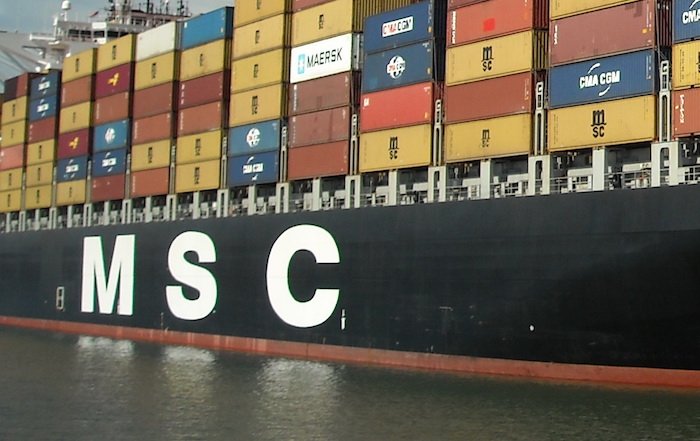
msccruises.
MSC Mediterranean Shipping Company (MSC) will re-route its ships along the west coast of Greece to reduce the risk of collision with endangered Mediterranean sperm whales.
The company’s says the decision comes after discussions with four major environmental non-governmental organizations who urged swift action in order to protect 200 to 300 sperm whales remaining in the region. In re-routing its ships, MSC becomes the first shipping line to take the action to protect the population.
The International Fund for Animal Welfare (IFAW), OceanCare and WWF Greece are working in collaboration with the Pelagos Cetacean Research Institute, which has been studying the eastern Mediterranean sperm whale population since 1998. The studies have identified the Hellenic Trench, to the west and south of the Peloponnese and southwest of Crete, as critical habitat for the species. Deep diving sperm whales are found there year-round, concentrating around the 1000-meter depth contour, directly in the path of busy shipping routes.
“As a global leader in container shipping and logistics, we have a responsibility to ensure that our cargo operations make a positive impact, reflecting our longstanding commitment to conserving and protecting the ocean and marine wildlife,” said Stefania Lallai, Vice President of Sustainability at MSC Mediterranean Shipping Company. “Collaborating with NGO partners is key to understanding and taking action to protect endangered sperm whales along the Greek coast.”
The area of most concern is currently a major container shipping route. More than half the sperm whales found stranded on the Greek coast show evidence of vessel collisions, or ship strikes. Statistically, only a very small proportion of ship strikes are reported and detected. In many instances, mariners on large ships are unaware that they even have hit a whale.
“The whales found dead on the shore with propeller marks and cuts are just the tip of the iceberg. Up to 20 times more die offshore and are never recorded. We are also seeing fewer whales in our yearly research surveys than in previous years, which is a huge concern”, explains Dr. Alexandros Frantzis, Scientific Director of the Pelagos Cetacean Research Institute. “It is our fear that without urgent action, deaths through ship strikes will cause this already small population to go extinct very soon”.
Earlier this year, the Greek Ministry of Defense through the Hellenic Hydrographic Office in collaboration with the Ministry of Maritime Affairs and Insular Policy and the Greek shipping industry issued an official notice informing mariners about the presence of marine mammals in the Hellenic Trench. The NAVTEX (NAVigational TEleX) warning instructs mariners to look out for whales and try to avoid collisions with them.
Male sperm whales grow to around 16 meters long (some individuals even up to 20 meters) and can weigh up to 41 tonnes. Outside of the Mediterranean, sperm whales are listed as ‘Vulnerable’, but due to its small size and geographic isolation, the Mediterranean population is listed as ‘Endangered’ on the IUCN Red List of Threatened Species.
“By making small re-routing changes, MSC is making a significant difference for these endangered whales. This population is at risk and even one ship strike is one too many. Now we need other shipping companies to show similar leadership – if all ship traffic using this area made these minor adjustments, the ship strike risk to sperm whales would be reduced by almost 75 percent,” the NGO coalition in a statement. “Ship re-routing is required now to change the course for sperm whales in the eastern Mediterranean.”
